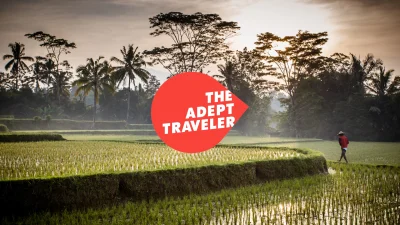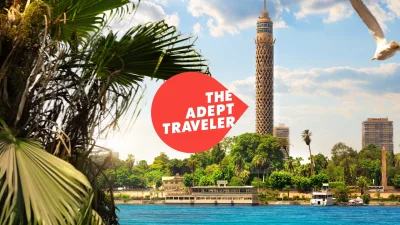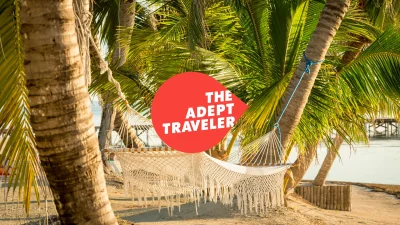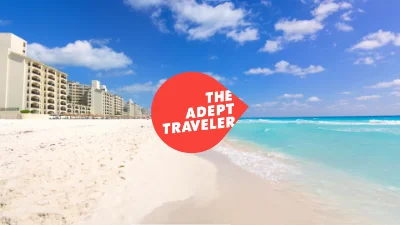Drinking Water Safety
Traveling offers exciting opportunities to explore new cultures, sights, and experiences. However, one aspect that often gets overlooked by travelers is the safety of drinking water. Consuming contaminated water can lead to a host of health problems, ranging from mild stomach discomfort to severe illnesses. Understanding how to ensure water safety while traveling is crucial for maintaining health and enjoying your journey without unpleasant interruptions.
Understanding the Risks
The risks associated with drinking water can vary significantly depending on the destination. In many developing countries, water sources may be contaminated with bacteria, viruses, parasites, or harmful chemicals. Even in developed countries, water systems can sometimes fail or become contaminated due to various factors such as natural disasters or infrastructural issues. Travelers should be aware of local water safety standards and potential risks in their destination to take appropriate precautions.
Researching Your Destination
Before embarking on your trip, conduct thorough research on the water quality of your destination. Reliable sources include the Centers for Disease Control and Prevention (CDC), World Health Organization (WHO), and the local government health departments. These organizations often provide up-to-date information on water safety and suggest preventive measures for travelers.
Purification Methods
There are several methods to purify water and make it safe for consumption. Each method has its pros and cons, and the best choice depends on the specific circumstances of your trip.
Boiling
Boiling water is one of the most effective ways to kill pathogens. Bringing water to a rolling boil for at least one minute (or three minutes at altitudes above 2,000 meters or 6,562 feet) can eliminate most harmful organisms. However, boiling water may not be practical in all situations, especially when access to a stove or kettle is limited.
Filtration
Water filters can be very effective in removing bacteria, protozoa, and even some viruses. Portable water filters are available in various forms such as straws, pump systems, and gravity bags. Be sure to choose a filter that is capable of removing pathogens specific to your travel destination. Remember, filters do not remove chemicals, so it's essential to know the type of contamination present.
Chemical Treatment
Chemical treatments, such as iodine or chlorine tablets, can disinfect water by killing bacteria and viruses. These tablets are lightweight, making them convenient for travelers. However, they may not be effective against some protozoa like Cryptosporidium and can leave an unpleasant taste. It's important to follow the instructions carefully and ensure the treated water has adequate contact time with the chemicals.
Ultraviolet (UV) Purification
UV light purifiers are an increasingly popular water treatment option among travelers. These devices use ultraviolet light to kill bacteria, viruses, and protozoa by destroying their DNA. UV purifiers are quick and effective, but they require batteries or a power source to function. Additionally, UV purification is only effective in clear water, as suspended particles can shield pathogens from the UV light.
Packaged Water
Bottled water is a convenient and generally safe option for travelers, especially in regions where tap water is unsafe. However, it's crucial to ensure that the bottled water is from a reputable source and has an intact seal. Beware of counterfeit or tampered bottles that may contain unpurified water. Additionally, consider the environmental impact of plastic waste and look for eco-friendly alternatives if possible.
Safe Practices
Aside from purification methods, adopting safe practices can further minimize the risk of waterborne illnesses. Here are some essential tips:
Avoid Ice
Ice cubes are often made from tap water, which may be contaminated. Opt for drinks without ice or ensure that the ice is made from purified or bottled water.
Use Bottled or Purified Water for Brushing Teeth
Many travelers overlook the importance of using safe water for oral hygiene. Always use bottled or properly treated water when brushing your teeth to avoid ingesting contaminated water.
Be Cautious with Fresh Produce
Fruits and vegetables washed in contaminated water can be harmful. Opt for fruits you can peel yourself, such as bananas or oranges, and choose cooked vegetables instead of raw ones.
Educate Yourself on Local Customs
In some places, locals might have adapted to the water quality and may advise you on safe practices. Don’t hesitate to ask for recommendations on safe dining locations and trusted water sources.
Emerging Technologies
Advancements in water purification technologies continually provide new solutions for travelers. Portable desalination devices, advanced ceramic filters, and ion-exchange resins are some of the innovations making safe drinking water more accessible. Keeping abreast of new products and technologies can provide additional options for ensuring water safety.
Health Precautions
Despite taking all recommended precautions, there's always a possibility of encountering contaminated water. Familiarize yourself with symptoms of common waterborne illnesses like gastrointestinal infections, giardiasis, and hepatitis A. Carry essential medications, such as antibiotics and antidiarrheal drugs, and know how to access medical help if needed. Hydration tablets or oral rehydration salts can be beneficial in case of dehydration caused by illness.
Cultural Sensitivity and Environmental Considerations
While managing your water safety, be mindful of the local culture and environment. In many regions, water resources are scarce, and over-reliance on bottled water can contribute significantly to plastic pollution. Consider sustainable practices such as using reusable water bottles and investing in robust water purification devices. Engaging with local communities and understanding their water challenges can provide a more profound appreciation of the preciousness of clean water.
Addressing drinking water safety during travel requires a combination of preparation, awareness, and adaptability. By employing a variety of purification methods, practicing safe habits, and staying informed about new technologies, travelers can significantly reduce their risk of waterborne illnesses. With the right precautions, the adventure of discovering new places can be both enjoyable and healthy.
Is It Safe to Drink the Water in Oceania? Comprehensive Guide

Is It Safe to Drink the Water in Asia? Comprehensive Guide

Is It Safe to Drink the Water in the Middle East and Northern Africa? Essential Guide

Is It Safe to Drink the Water in Europe? Essential Guide

Is It Safe to Drink the Water in Central America? Essential Guide

Is It Safe to Drink the Water in the Caribbean? Essential Guide

Is It Safe to Drink the Water in Mexico? Your Essential Guide

